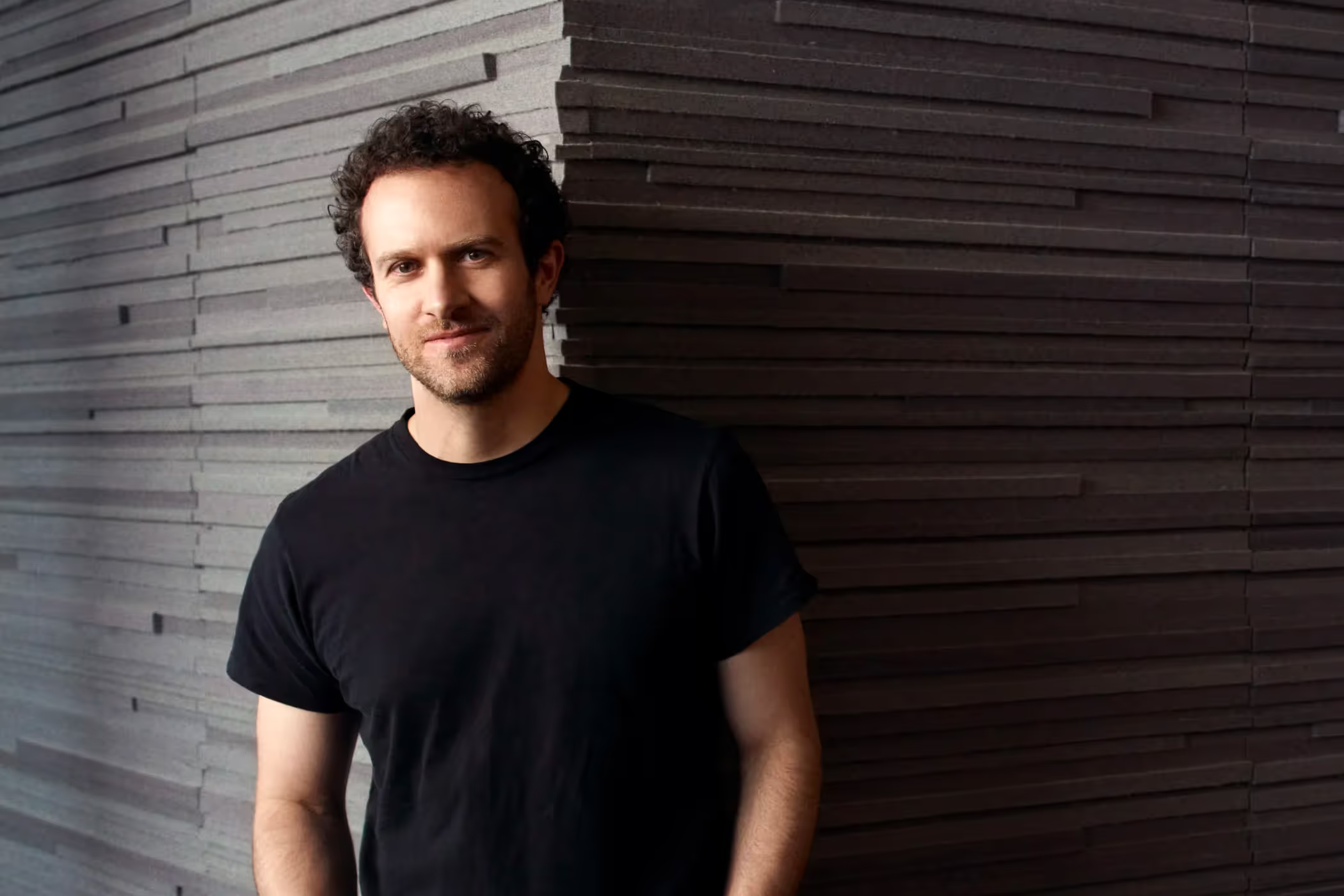
Articles
Basecamp CEO Jason Fried Has 5 Tips for Getting Out of Your Employees’ Way
November 10, 2022

Putting the right people in the right roles is pivotal to growing a business. But for Jason Fried, the co-founder and CEO of Basecamp, you also have to trust your team to do their job well.
In addition to Basecamp, Jason is the co-founder and CEO of Hey and 37 Signals. He’s co-written several books, including “Rework” and “It Doesn’t Have to Be Crazy at Work.” And he’s widely known for achieving these accomplishments by doing less and trusting others more.
We recently had the privilege to sit down with Jason at Playbook 2022. And in this value-packed session, he explains why getting out of your employees’ way is pivotal to sustainable success.
1. Follow the 8-8-8 rule.
Jason (and the rest of his team) believe that finding balance is key to happy, productive people. As a result, they all aim for eight hours of work, eight hours of sleep, and the remaining eight hours for personal life. “It turns out that eight hours of sleep is exactly what you want, eight hours of work is enough, and the rest of the time is yours [to spend],” Jason explained.
In other words, Jason doesn’t push his teams beyond their limits. And he believes this reasonable request has been lost over the years thanks to hustle culture and daily distractions.
“The tech industry lost its way [by thinking] you need to put in 60+ hours [of work] a week and work weekends,” Jason shared. “But eight hours has stopped being enough because people are distracted by a million things.”
These distractions include too many meetings and constant access via online chat. “Eight hours is a lot of time [unless] it's being fractured and shattered into these tiny work moments,” Jason explained. But when employees get eight hours of uninterrupted work, they can get more done.
“Eight hours is plenty of time [when] you give people a full day's worth of work and time to themselves.” – Jason Fried, co-founder and CEO of Basecamp, Hey, and 37 Signals
That said, Jason also believes that sleep and personal time are equally important. He wants his employees to log off at the end of the day and pursue other interests after work. And he wants his team to have plenty of time to rest and recharge before they start the next day.
2. Let employees do their job and eliminate distractions.
At 37 Signals, Jason gives employees an eight-hour workday by eliminating possible distractions. “We try to stay out of their way as much as possible,” he told us. “And when you do that, you find out [that employees] have plenty of time.”
For example, Jason and his leadership team avoid having managers when possible — and allow small teams to work together self-managed. “Some people check in [on the team], but they make the decisions [for] their day,” he explained. This way, they have more time to work.
“Most people spend 20% of their time [doing what they were hired to do] because [they spend] all their time doing other things,” Jason told us. “That's why people think they need to work longer because they don't have time to actually do the work.”
On the other hand, if you eliminate unnecessary distractions, your team can spend closer to 80% of their time doing the job you hired them to do. As a result, they can focus on tasks that matter, contribute valuable actions, and still feel sane and centered at the end of the day.
Here are some ways to help employees eliminate distractions:
- Set up periodic check-ins versus managing every single team.
- Keep meetings to a minimum and default to asynchronous communication.
- Encourage employees to block off time on their calendars for uninterrupted work.
- Tell employees it’s okay to temporarily silence chat rooms or phones.
- Normalize not responding immediately to chats or emails when it’s not an emergency.
In general, you can apply these strategies to any business. But there are some instances where this kind of autonomy might not work.
For example, you may have a high-turnover business that requires more supervision and ongoing training. Or, you may have a business where employees must be plugged in all the time. Point is, your team can focus more on work if they’re not constantly distracted.
“Everyone wants [employers] to just let [them] do [their] job.”
3. Set the example and save the hustle for urgent moments.
Jason says it’s up to the business leader to set an example for their employees. And if you want your team to have a balanced workday, you have to lead the business in a similar manner. “You can't say [work eight hours] and then drive people to [have to work more],” Jason explained.
For example, there are relatively few tasks that can’t wait until tomorrow to be completed. And when you show employees that it’s okay to wait, they feel comfortable logging off, too. “If you can't get it done by 5 p.m. that day, you can work on it the next morning,” Jason added.

That said, there will be occasional moments when you have to burn the midnight oil. But if you tell employees it’s the exception (rather than the rule), they’ll be more likely to show up and do the urgent work when needed. “People are reasonable to understand [that] occasionally you need to put in more [time],” Jason told us. “But everything can't be urgent.”
For business leaders, this means checking their work habits and pulling back if necessary. For example, you should keep any work communication during work hours (no weekends or late nights). Or, you can have employees save unfinished tasks for the next day.
“The example you set is an example, whether you meant it or not.”
4. Avoid drive-by feedback and let employees produce results.
For Jason, one of leaders’ biggest mistakes is giving thoughts on a project when they’re not initially involved. He calls this providing “drive-by feedback” and says it does more harm than good. “It might be helpful [in your mind] to throw something out there, but now you've thrown a wrench in there,” he explained — and it doesn’t matter if it’s negative or positive.
Because of the inherent power structure in organizations, whatever you say as a leader will be taken as the greatest priority. It will throw off whatever momentum was already there and lead employees to produce results that please you (and maybe bypass the best outcome instead).
“You rarely actually intend [to shift projects with your thoughts],” Jason told us. “But [you] have to recognize that truth whether you meant to do it or not.” And for business owners, that means leaving employees to carry out projects and trusting them to find the best solution.
“[Drive-by feedback] is when you're not really involved in the [task], but you’re paying attention peripherally and just drop [a comment].”
5. Leaders act as arbiters of quality.
Once you get out of your team’s way (and avoid dropping drive-by feedback), your primary responsibility as a business leader is to safeguard quality. “[We’re not necessarily] the idea generators [for delegated tasks], but the arbiters of quality,” Jason explained.
In other words, don’t focus on the nitty-gritty details when you hire someone to do that job for you. Instead, focus on the final results and whether they meet customers’ standards. This ensures that things get done right while freeing up more of your time to focus on the business.
“You can get a lot done if you're economical with your time and treat it as a scarce resource.”
It’s hard to break long-held work habits. But if you want to grow your business sustainably (without burning out), it’s crucial to let go and trust your employees to do the job right. Start with these five simple tips and start shifting your perspective right now.
Similar Blog Posts










